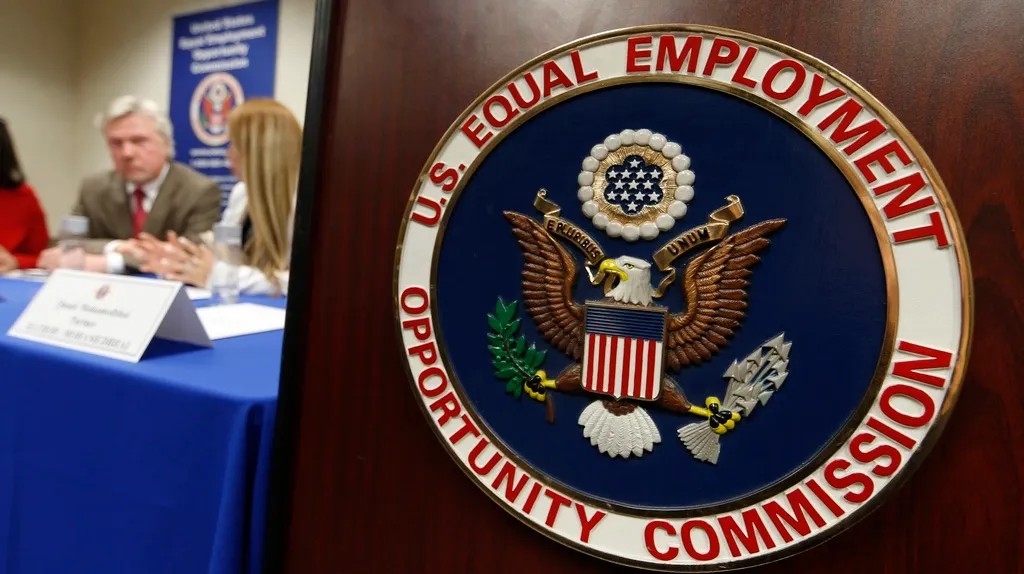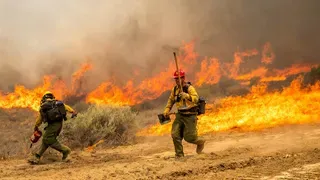September 21, 2014
SF Bids to Host 2018 AIDS Confab
Kilian Melloy READ TIME: 4 MIN.
San Francisco is a finalist to host the 22nd International AIDS Conference, set to take place in 2018.
According to Mayor Ed Lee, the final two cities competing to welcome AIDS researchers, patients, and activists from across the globe in four years are San Francisco and Amsterdam.
Lee acknowledged, however, that there is an "emotional attachment to Amsterdam" being granted the host status due to the deaths in July of several Dutch AIDS researchers when the Malaysian Airlines flight they were taking to attend this year's AIDS conference in Melbourne, Australia was shot down by Ukrainian rebels near the Russia-Ukraine border.
Among the victims was renowned Dutch AIDS researcher Joep Lange, a leader at the Amsterdam Institute for Global Health and Development. Lange was also a former president of the International AIDS Society, which is the lead host for the biennial AIDS confabs and whose governing council will select the host city for 2018 this December.
Lynda Piper-Roche, a spokeswoman for the International AIDS Society, confirmed that "it's down to these two cities and we'll make a decision by the end of the year."
A four-person selection committee arrived in town Monday for two days of meetings with local officials. Over the last year the San Francisco AIDS Foundation, SF Travel, and Lee's office have been working on the city's bid to become host.
"I hope we are picked," Lee told the Bay Area Reporter during an editorial board meeting last week. "But I also understand if we are not picked it is because of the terrible tremendous loss of talent of Amsterdam."
"We all will give the nod to Amsterdam if they are ultimately picked because we understand," added Lee. "It is a worldwide thing. But we are aggressively saying we also have a great reason to host it."
SFAF spokesman James Loduca noted that San Francisco was where AIDS first reached epidemic proportions and now, three decades later, is looking at eliminating transmission of HIV.
"San Francisco has always been a leader when it comes to HIV and we think the return of the conference in 2018 would be a wonderful opportunity to showcase the tremendous progress we are making here in San Francisco," said Loduca.
Gay District 8 Supervisor Scott Wiener authored a resolution, which the Board of Supervisors unanimously passed Tuesday, September 9, in support of the city's bid to host the conference. The resolution was co-sponsored by gay District 9 Supervisor David Campos and District 3 Supervisor David Chiu, the board's president.
Wiener's been talking to Lee's office and SFAF about bringing the conference to the city in 2018, and he plans to meet with the conference selection committee "later this month."
"San Francisco has always been on the cutting edge of HIV care and prevention," Wiener said. "We've always been at the epicenter of this epidemic, both in terms of being incredibly hard hit by the epidemic, and in terms of our response to the epidemic. We've created models here that have been replicated around the world."
He said having the gathering in San Francisco would also be "a reminder that the epidemic is still very much present in San Francisco. We still have a lot of people living with the disease," many who "struggle to access health care and get their medications, and we still have new infections occurring here."
The conference would "highlight our city's unique role, and highlight the fact we have a lot of work left to do," Wiener said.
Like Lee, Wiener expressed sympathy for the people of Amsterdam.
"I love Amsterdam," he said. "San Francisco and Amsterdam are two of the best cities in the world, and what the Netherlands went through in terms of that crash and the loss, not just of lives but of significant leaders in the HIV community, was a horrible tragedy, so we all want to be very supportive of that community. With that said, I also believe San Francisco would be a phenomenal site for the 2018 conference, and I do believe San Francisco is the right choice."
Asked whether the meeting would cost the city money, Wiener said, "I don't think so. I believe it would all be privately funded."
The city's bid has elicited some opposition, with Zi Teng, a Hong Kong-based non-governmental organization that works with sex workers, calling for San Francisco not to be selected. It signed on to a letter submitted by the advocacy groups INPUD (International Network of People who Use Drugs) and NSWP (The Global Network of Sex Work Projects) asking the International AIDS Society not to pick a U.S. city to host the International AIDS Conference 2018.
"Though the U.S. government has done much on HIV prevention, more is the criticism on some of her discriminative policies and immigration measures against sex workers and drug-users, which are two social groups closely related to the risk of HIV/AIDS," noted Zi Teng in its June newsletter. "For example, it imposes ban on the purchase of supplies in the needle and syringe programs, it requires the groups and projects seeking for the U.S. funds to sign the 'anti-prostitution pledge.'"
San Francisco last hosted the AIDS conference in 1990, when the theme was "AIDS in the Nineties: From Science to Policy" and 11,000 people participated in the sixth such confab, according to a history of the conferences posted online. It was the last time an American city hosted the conference until 2012, when Washington, D.C. served as the host city.
The decades-long boycott of the U.S. was due to a travel ban imposed on people living with HIV and AIDS from entering the country. While President George W. Bush supported ending the policy, it took until 2010 for President Barack Obama to officially repeal it.
The 21st International AIDS Conference (AIDS 2016) is set to take place July 17-22 in Durban, South Africa.
Seth Hemmelgarn contributed to this report.
Kilian Melloy serves as EDGE Media Network's Associate Arts Editor and Staff Contributor. His professional memberships include the National Lesbian & Gay Journalists Association, the Boston Online Film Critics Association, The Gay and Lesbian Entertainment Critics Association, and the Boston Theater Critics Association's Elliot Norton Awards Committee.






